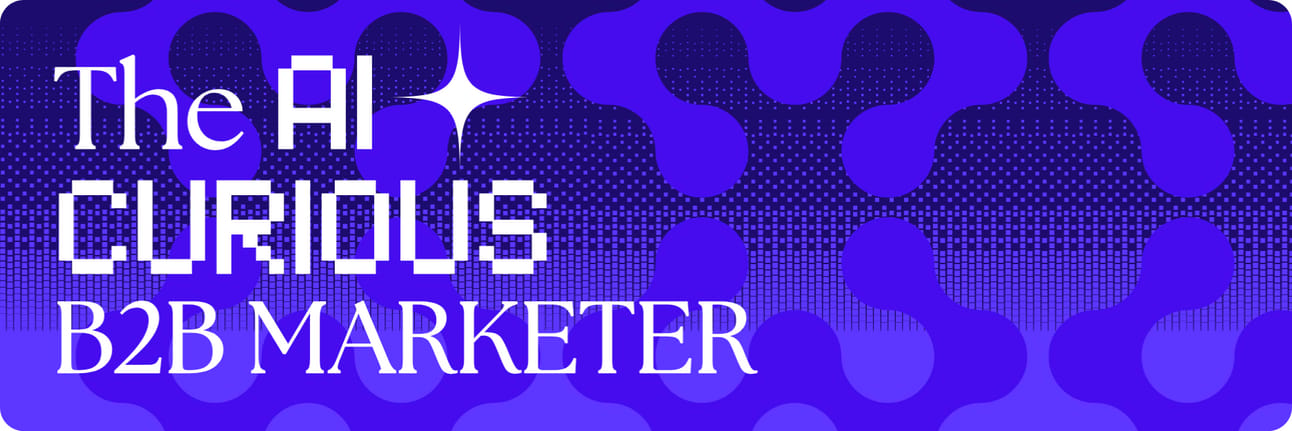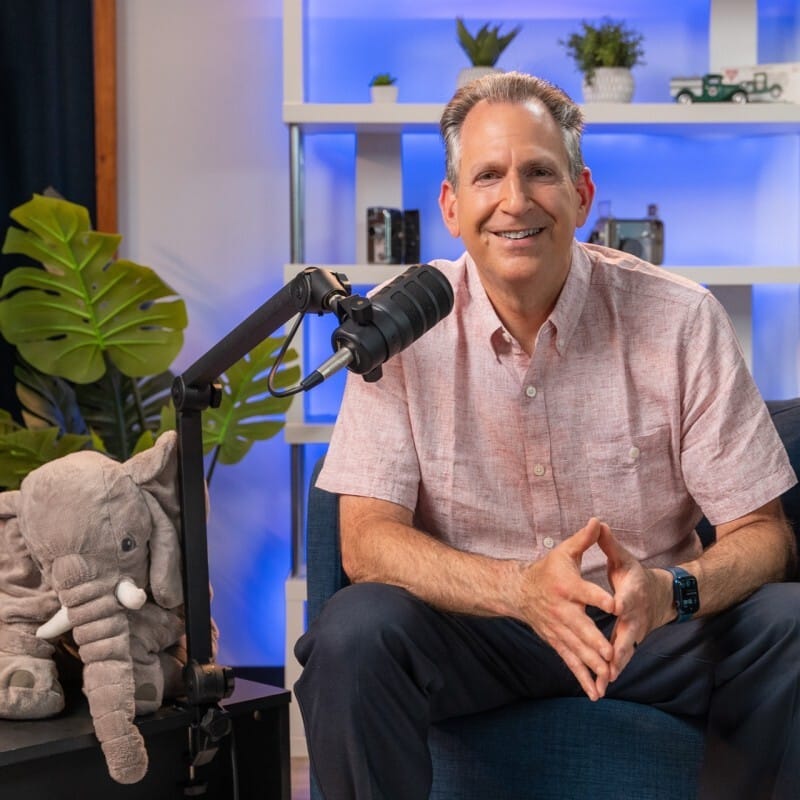
Did you think moving to Iceland for six weeks would slow me down? Nope. The bad news is that this newsletter is long; the good news is that under each longer section, I’ve put a TL;DR (Too Long Don’t Read) section underneath for those of us with limited attention spans (me). Please enjoy!
🗞️ News That Actually Matters
🎙️ Expert Insight - from my chat with NYT bestselling author and marketing pioneer, Bryan Eisenberg
🧩 Project Playground - Exciting announcement!
🚗 Tool Test Drive - My favorite AI tool of all time
💼 The Future of Marketing Jobs - Is AI going to make you unemployed?
📣 Word of the Week - Wouldn’t you like to know 👀
🗞️ News That Actually Matters
1. HubSpot Introduces Breeze Dynamic Sequences: AI-Powered Email Workflows (July 20, 2025 – ImpactPlus via interview)
HubSpot’s “Breeze” AI now includes Dynamic Sequences that automatically adjust send timing and move prospects through email → phone → LinkedIn outreach based on real engagement signals (impactplus.com).
Why it matters: These smart workflows reduce manual effort and ensure follow-ups align with recipient actions—ideal for B2B teams scaling outreach without hiring extra people.
2. 6sense Case Study: 32% Increase in Demo Conversions via AI Personalization Engine (July 17, 2025 – DemandGen Report)
Using firmographic signals and generative copy variations, 6sense boosted demo conversions by 32% in a real-world B2B SaaS campaign (impactplus.com).
Why it matters: It’s a clear, actionable proof point showing AI-powered personalization working in the funnel—perfect for marketers looking to replicate success.
3. New Zapier AI Agent: Build Multi-Step B2B Automations with One Prompt (July 19, 2025 – Zapier Blog)
Zapier’s new “Agents” let users build full workflows—like lead capture → Slack alert → CRM update—by simply describing the process in plain English (Empathy First Media).
Why it matters: Marketers can now automate complex operational tasks without developer support, freeing time for strategy and creative work in small-to-mid teams.
🎙️Expert Insight

I recently had the chance to speak with Bryan Eisenberg, recognized as a pioneer in conversion rate optimization (CRO) and a NYT best-selling author with over 25 years of experience helping brands create compelling stories (including Google, Disney, GE, Chase, and HP).
When I asked him, "How can marketers prepare themselves for long-term success in the AI landscape?" his answer was surprisingly simple: it all comes down to relationships. In the age of AI, the connections brands build with their customers become even more valuable. While AI tools can optimize campaigns and analyze data faster, brands that maintain trust and emotional resonance with their audience will ultimately thrive.
🧩 Project Playground

Gif by snl on Giphy
After just one month of launching this newsletter, I'm ready for a brand makeover. Yes, that's a bit unhinged, but hear me out. I had to start this thing to clarify what I want it to be. I took the complete opposite approach to my normal process—instead of trying to make everything perfect and organized before starting, I just began doing the damn thing and figured it out along the way. If I'd waited for perfection before launch…I'd still be waiting.
With that said, I'm launching a new section called "Project Playground," where I break down projects into bite-sized pieces, week by week, as I complete them. You can follow along with projects both big and small. The challenge? Figuring out the best way to use AI throughout each process.
My first project? A brand makeover of The AI Curious B2B Marketer (new name coming soon).
Here's how I'm breaking it down, step by step, so you can easily replicate this approach for your ideas:
🔍 Step 1: Purpose & Vision
🎯 Step 2: Target Audience & Reader Identity
🧱 Step 3: Positioning & Differentiation
🧩 Step 4: Name, Tagline, and Brand Hook
🗂️ Step 5: Content Pillars & Format
🎨 Step 6: Visual & Tonal Direction
📈 Step 7: Growth Strategy
I've already roughly tackled many of these steps, but I'm ready to refine and clarify everything while putting AI to work.
🔍 Step 1: Purpose & Vision starts next week. In the meantime, if you’d like to really get the most out of this, consider an idea you'd like to explore, perhaps it's defining your personal brand more effectively, and get ready to follow along!
TL;DR
New "Project Playground" section will document AI projects in bite-sized pieces
First project: rebranding this newsletter (with a new name coming soon)
Following a 7-step process that you can replicate for your own projects
Each step will incorporate AI tools to enhance the process
Step 1 (Purpose & Vision) starts next week
🚗 Tool Test Drive
When I tell people that I write an AI marketing newsletter, the first question they often ask is: "What's your favorite AI tool?" It's a fair question, but my answer isn't straightforward.
The tool I use most frequently is ChatGPT. I began using it during my senior year of university when AI burst into the mainstream. I like it not just because I'm comfortable with it, but because it's versatile in numerous ways:
Research assistance: I can quickly get topic summaries, explore different perspectives, or gather information without sifting through countless search results.
Creative ideation: When I'm stuck or need fresh angles for my newsletter, ChatGPT helps me break through creative blocks with unexpected suggestions.
Editing and refining: I often draft content quickly, then use ChatGPT to polish it, fix awkward phrasing, or find more impactful ways to express my ideas.
Travel: It helps with planning trips, researching local favorites, and currently—while I'm living in Iceland—translating grocery items into English so I don't accidentally buy fermented shark soup (a real thing, by the way).
My favorite AI tool? Here's the catch about single-purpose tools: they cost money! Without careful management, we can easily rack up monthly subscription costs for multiple tools, quickly reaching hundreds of dollars. In this economy? No thanks. My actual answer is any platform that combines multiple AI tools into one. For example, Notion, which I use to manage both personal and professional projects, offers access to various models, including Claude, ChatGPT, and Gemini. Similarly, Kortex provides comparable options and works especially well for content creators seeking AI as a collaborative partner.
So while ChatGPT is my most-used tool, my favorite is any comprehensive platform that consolidates multiple AI capabilities affordably. Currently, I pay monthly subscriptions for just Notion and ChatGPT (for the deep search feature), totaling about $42/month. This approach saves money and creates a seamless workflow with everything in one place. The best AI tool isn't necessarily the most powerful—it's the one that integrates naturally into your life and work without becoming a financial burden.
TL;DR
ChatGPT is my most-used AI tool because of its versatility across research, creative work, editing, and even travel assistance
Rather than having one favorite AI tool, I prefer platforms that consolidate multiple AI capabilities into a single service
Tools like Notion and Kortex provide access to multiple AI models (Claude, ChatGPT, Gemini) without requiring separate subscriptions
My current AI budget is about $42/month for Notion and ChatGPT subscriptions
The best AI tool isn't necessarily the most powerful, but one that fits naturally into your workflow without becoming a financial burden
💼 The Future of Marketing Jobs
The rumors are true: AI is displacing workers, hitting recent college graduates hardest. Unemployment rates for new grads have jumped, especially in technical fields where AI excels. In non-technical areas, companies use "AI First" as a forcing function—upskilling current employees while raising KPI expectations instead of creating entry-level roles.
And I thought landing a job after graduating in 2023 was hard 😬
The Early Adopter Missteps
I see the long-term value in AI-first approaches, but some companies jumped the gun. Klarna took an AI hammer to their entire business instead of using surgical precision to target bottlenecks. Meanwhile, Duolingo created a PR disaster by publicly announcing its AI-first strategy.
Who would've thought people don't want AI replacing jobs??
The Silver Lining: New Opportunities
Disruption creates new roles. According to the New York Times, emerging positions include:
AI auditor
AI translator
AI ethicist
Consistency coordinator
Escalation officer
Protecting Your Career Right Now
Based on insights from thought leaders and industry publications, here's what I’m personally focusing on:
1. Play with AI Tools (Even Outside Work)
Many companies restrict external AI tools due to data policies—a huge barrier to upskilling. My workaround? Use AI in your personal life:
Plan summer getaways (research destinations, create itineraries, find deals)
Analyze spending habits and create budget templates
Draft personalized workout routines
2. Learn Company-Approved AI Tools
Ask strategic questions: What AI tools do your salespeople use for email sequences? What data sources feed those tools? Where can marketing drive influence? Start asking, and you'll find opportunities.
3. Focus on Uniquely Human Skills
Double down on strategic thinking, emotional intelligence, and creative problem-solving. Building relationships remains irreplaceable—we're entering a period called: "the revenge of the liberal arts majors."
TL;DR
AI is displacing entry-level workers, especially recent grads
"AI-First" companies prioritize upskilling over hiring
Early adopters like Klarna and Duolingo faced challenges with broad AI implementation
New AI-related roles are emerging across industries
Protect your career by: experimenting with AI tools, learning approved solutions, and developing uniquely human capabilities
Human creativity, strategic thinking, and relationship-building remain AI's kryptonite.
📣 Word of the Week
Neural Network – A computing system inspired by the human brain, consisting of layers of nodes (neurons)🤯.
Another reason I will not be eating fermented shark soup, other than how god awful that sounds, is that sharks are considered a keystone species and therefore must be protected if the health of our oceans is to survive. Highly recommend giving the “Shark Whisperer” documentary on Netflix a watch.
Confused? Bet you only read the TL;DR sections 👀 😉.
As always, stay Human First ☝🏻 → AI Forward.
See you next Tuesday, in your inbox!
Skyler Neal


